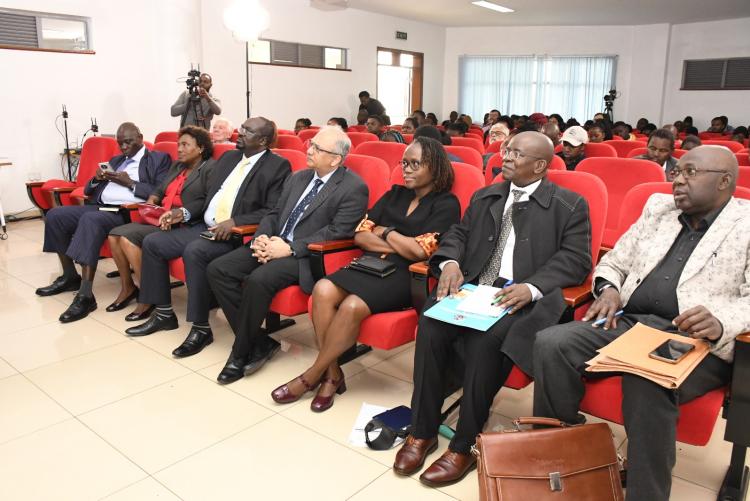The Department of History and Archaeology proudly hosts the International Conference on the Mau Mau Movement, themed "Mau Mau: Transitions and Contours of the Postcolonial State." The three-day event, running from October 16th to 18th, 2024, at UoN Towers, Fourth Floor, Room MLT04, brings together leading scholars, historians, and experts from around the world to explore the Mau Mau's legacy, its struggles, and its profound impact on Kenya's postcolonial state.
In his opening remarks, Dean Prof. Jack Odhiambo warmly welcomed all attendees and highlighted the significance of the Mau Mau Movement in shaping Kenya's history and its lasting impact. He expressed gratitude to everyone who contributed to making the conference possible. Prof. Odhiambo also delivered the Vice-Chancellor’s message, in which Prof. Hutchinson stated, "This conference will deepen our understanding of our historical struggles and their influence on our 61-year journey towards building a nation rooted in the rule of law, merit, fairness, and justice." Prof. Odhiambo then officially inaugurated the conference, marking the start of this important academic dialogue.
The keynote address was delivered by Christian David Alvarado from the Department of African American and African Studies at the University of California, Davis, USA. His speech highlighted key themes, including "Storms in Kenya: Mau Mau Pan-Africanism and the End of Empire," which explores the lasting scars of colonial oppression and the ongoing fight for justice and recognition. He also examined the personal dimensions of the Mau Mau struggle, emphasizing that it was not just a historical event, but a deeply personal battle that forever changed the lives of many individuals.
This conference goes beyond being an academic forum. It fosters the exchange of ideas among historians and scholars from diverse regions and institutions, deepens collective understanding, and strengthens global connections. It underscores the importance of history in uniting us and informing contemporary issues.
The conference will cover a range of topics, including:
- Lessons from Mau Mau for Contemporary Resistance Movements
- Mau Mau’s Wounds and Dreams
- Mau Mau: Dream, Uhuru, and Political Reality
- Stolen Valor: Complicity, Guilt, and Reading Lessons in Grain of Wheat
- The Mau Mau Struggle as a Personal Journey
- Steal, Kill, and Destroy: The Moral Logic of Mau Mau Plunder and Sabotage in Colonial Kenya 1952-1956
- The Legacy of Counter-Insurgency in Post-Colonial Kenya, among others.
The faculty is deeply grateful to our sponsors, partners, and supporters, whose contributions have made this conference possible. Your unwavering support has been essential in facilitating this critical dialogue, and we thank you for being part of this important conversation.

